Ian Barrows: Mastering the College Game
Published on July 17th, 2017
Ian Barrows was awarded College Sailor of the Year, seven years after his brother Thomas had his name engraved on the same trophy. Now graduated from Yale University and easing into some 49er Olympic sailing with fellow Bulldog Mitchell Kiss, we checked in with Ian about his upbringing and what tips he can offer to the college sailing crowd.
Any brotherly advice when you began at Yale?
Not that I can think of, but every time I had a question for him when I was in college, or needed advice, he was always there for me. So he was a big help and someone I always looked up to and was a good influence on me.
Did his accomplishments motivate you?
Definitely! I always thought about it all the time in college, wanting to succeed at what he was able to do.
You both came up from St. Thomas Yacht Club in the U.S. Virgin Islands. In fact, Nikki Barnes, who was recognized as the College Women’s Sailor of the Year last year, is someone you grew up with. What’s going on down there?
For starters, the conditions down there are really good. You get to sail all year, which is an advantage. It’s enjoyable to be sailing because the air and water temperature is always warm. It’s also consistently 10 to 15 knots pretty much every day. So you get the trade winds and big waves there, which makes for fun and effective practicing conditions.
You see this translated in college, as generally when it gets windier, you see the Virgin Island sailors do really well. That comes from our time in those conditions, but we also get a lot of college coaches that come down to train with us. Additionally, we’ve had some Argentinian coaches that have come to St Thomas like Argy Resano. He basically coached me and Nikki all our lives which was a big plus for us
Does it help to be from an area where the ocean is part of the lifestyle?
I think so. We become very comfortable and aware while on the water, whether it’s sailing, or surfing, or fishing. Basically, everything you do down there is on the water.
Note: In addition to Ian Barrows receiving College Sailor of the Year, the Virgin Islands was represented by Nikki Barnes earning the annual Sportsmanship Award voted on by the teams, Graceann Nicolosi being named All-American crew, and Nikki and Mack Bryan earning All-American Honorable Mention as skippers.
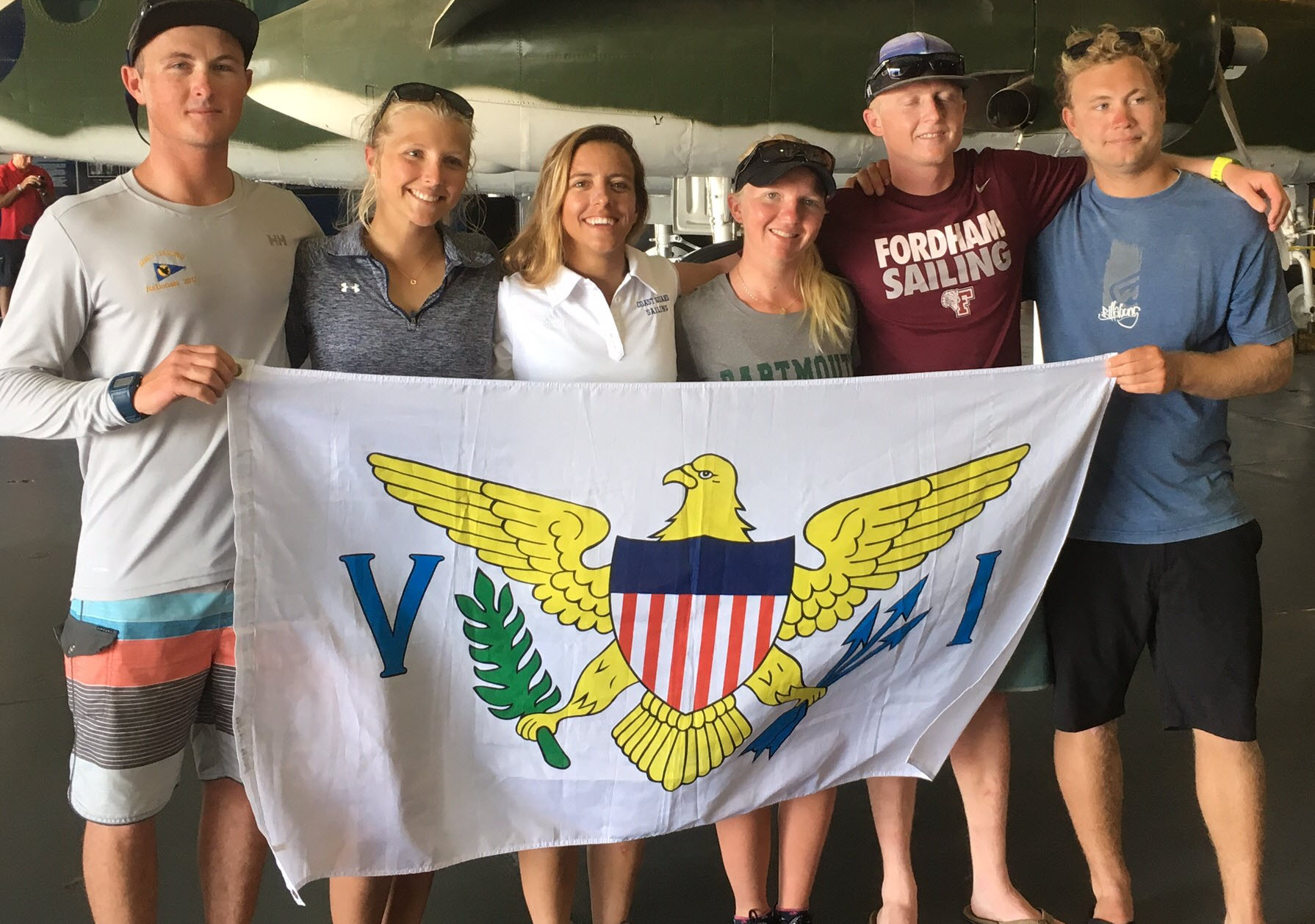
Six sailors in the top 10 college teams in the nation were from the U.S. Virgin Islands – representing freshmen through seniors and from St. Thomas, St. John and St. Croix. Left to right: Mackenzie Bryan (Roger Williams), Graceann Nicolosi (Yale), Nikki Barnes (U.S. Coast Guard Academy), Paige Clark (Dartmouth), Alec Tayler (Fordham) and Ian Barrows (Yale). Photo: Ann Nicolosi
Looking back, would you consider yourself well-prepared when you began college sailing?
I wouldn’t necessarily say I was completely ready for it, but you’re definitely well prepared for it. We generally practice a lot of team racing down in St. Thomas, and we generally do pretty well at the high school nationals. But ultimately the only way to really be prepared is by doing college sailing. I was good enough at sailing the boats, so it is more about improving risk management skills, and understanding how to get the few extra inches that’ll help you on the short college race course.
Any weaknesses that you had to work on?
Probably the shiftier condition was a little tough to understand at first. In St. Thomas, you have the consistent trade winds with so slow oscillation, which is a lot different than the Charles River and adjusting to shifts every five seconds. It was tough at first, but by the end of my college career I considered those conditions to be one of my bigger strengths.
For the same reasons, light air sailing wasn’t a strength since you really never get those conditions in St. Thomas, but luckily, I also went to Marblehead in the summers where it’s generally not too windy. So I think that helped me prepare for the light air, and by the end of my career I was definitely a lot better in light air.
Is there an ideal size or weight for college doublehanded sailing?
I’m five foot ten or eleven and maybe 185 pounds… maybe not ideal. I actually began my college career at probably the perfect size, which was about 155 or 160 pounds. At this weight and height, it is a plus for boat handling, but I do think there is a big range that can be effective. I know Nikki probably sailed at around 240, 250 pounds, and my crew and I were probably 305 pounds together, and we’re definitely pretty even in speed.
With that said, my crew and I were one of the heavier teams, and for us there was certainly less room to make mistakes. If you get down speed, it’s a little bit harder to get back to speed. But I think size is something that people over exaggerate its importance. It really comes down to how smart you sail, and making the least amount of errors on the course.
Most of the doublehanded events are in FJs, 420s or Z420s. Any tips?
In my freshman year, I was a little rusty in the FJ and had a little bit of trouble with it. But by my sophomore year, I liked the FJ more than the 420, especially for team racing. Each year the emphasis varies depending on what will the nationals host will be using. Ultimately, if you put the practice time in every week and throughout the year, you should have it mastered by the time you’re a junior.
But isn’t there a problem for small skippers and the FJ?
In a 420, you can basically put whatever size crew in the front of the boat. For example, you could put a 170-pound person when it’s really windy, or there could be a really big skipper with a light-air crew, and it’s really not going to make a difference. But in an FJ, the more weight you put in the front of the boat does make it slower. So definitely, when it gets on the windier side, in FJs, it pays a lot to be a bigger skipper.
Let’s talk about the mental endurance needed for college sailing.
With the sheer number of races in a regatta, it’s definitely a huge psychological game. You can’t beat yourself up too much after a bad race because they do happen, especially with the level of competition at some of the events. With upwards of 18 races at a regatta, it is about staying optimistic and moving on to the next one.
It must be nice to conclude your college career by being named Sailor of the Year. What does that award mean to you?
It means a lot. It’s awesome that all the hours I put in, and the performance that came from the commitment, was recognized. I have had a lot of support along the way from my family, St. Thomas and Yale, so it is as much an honor for them as it is for me.


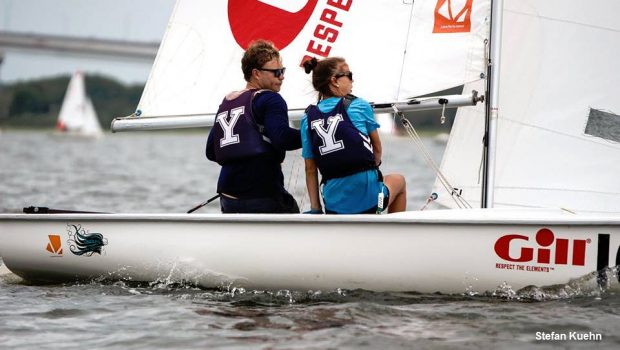
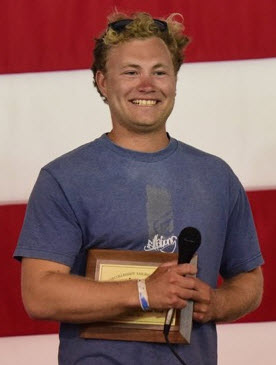


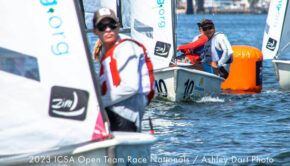
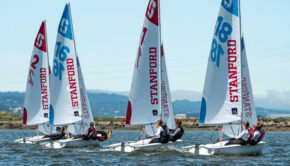
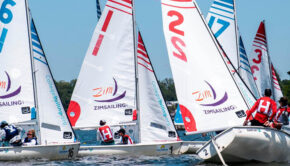

 We’ll keep your information safe.
We’ll keep your information safe.